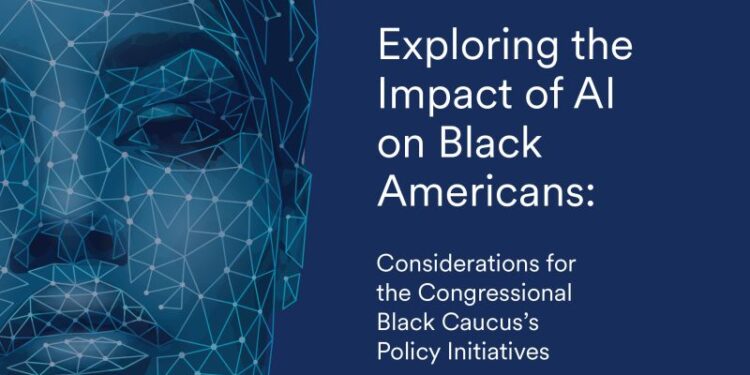Img source: hai.stanford.edu
May 1, 2024 Story by: Publisher
Presented in collaboration with Black in AI, this white paper delves into considerations for the policy initiatives of the Congressional Black Caucus (CBC), shedding light on AI’s potential to exacerbate racial disparities while also offering avenues for empowerment within Black communities.
Overview
In the era of artificial intelligence (AI), the CBC plays a pivotal role. AI, defined as computational systems mirroring human intelligence for learning, reasoning, and decision-making, presents both promises and dilemmas. While the CBC’s policy objectives remain steadfast, adapting to the AI landscape demands a nuanced approach. This paper aims to equip the CBC with insights into recent AI advancements and their implications for Black Americans, grounding policy decisions in this evolving technological terrain.
Foundations of Sound AI Policy
Effective AI policy necessitates a comprehensive approach, addressing racial biases ingrained in AI development. This involves discerning which societal issues AI can tackle effectively and which decisions warrant human discretion over algorithmic intervention. By fostering a forward-thinking AI strategy rooted in equity and justice, the CBC can ensure widespread benefits and mitigate risks.
Challenging the Myth of Tech Neutrality
Technology, including AI, reflects and perpetuates societal values rather than operating in a vacuum. Historically, biases have been entrenched in scientific endeavors, shaping perceptions of race and surveillance practices. AI, likewise, inherits and amplifies racial biases, manifesting in discriminatory outcomes across sectors like employment and criminal justice. While AI poses risks of exacerbating inequalities, its judicious deployment can enhance healthcare, education, and economic opportunities for Black communities. By prioritizing human-centered AI, the CBC can steer technological advancements towards inclusive prosperity.
AI’s Perception of Race
AI’s portrayal of race often oversimplifies identities, reinforcing stereotypes and marginalizing nuanced experiences. Racial categorizations, influenced by historical data and institutional practices, fail to capture the complexity of social identities. Despite efforts to rectify biases in AI, challenges persist throughout the development lifecycle. To comprehend AI’s impact on marginalized groups, acknowledging and addressing these limitations are imperative.
White Paper Structure
This paper elucidates key AI developments relevant to the CBC, particularly focusing on generative AI models and their cross-sector applications in healthcare and education. By highlighting sectors less frequently associated with discussions on race and AI, the paper aims to expand the CBC’s policy platform. Emphasizing the need for proactive measures, it underscores the importance of regulating AI to safeguard civil rights and promote racial justice.
While issues such as algorithmic policing and surveillance remain pertinent, this paper seeks to broaden the discourse, offering insights applicable beyond the CBC’s purview. By fostering dialogue and awareness, it paves the way for informed policymaking in an AI-driven society.
You can read the full white paper here.

















